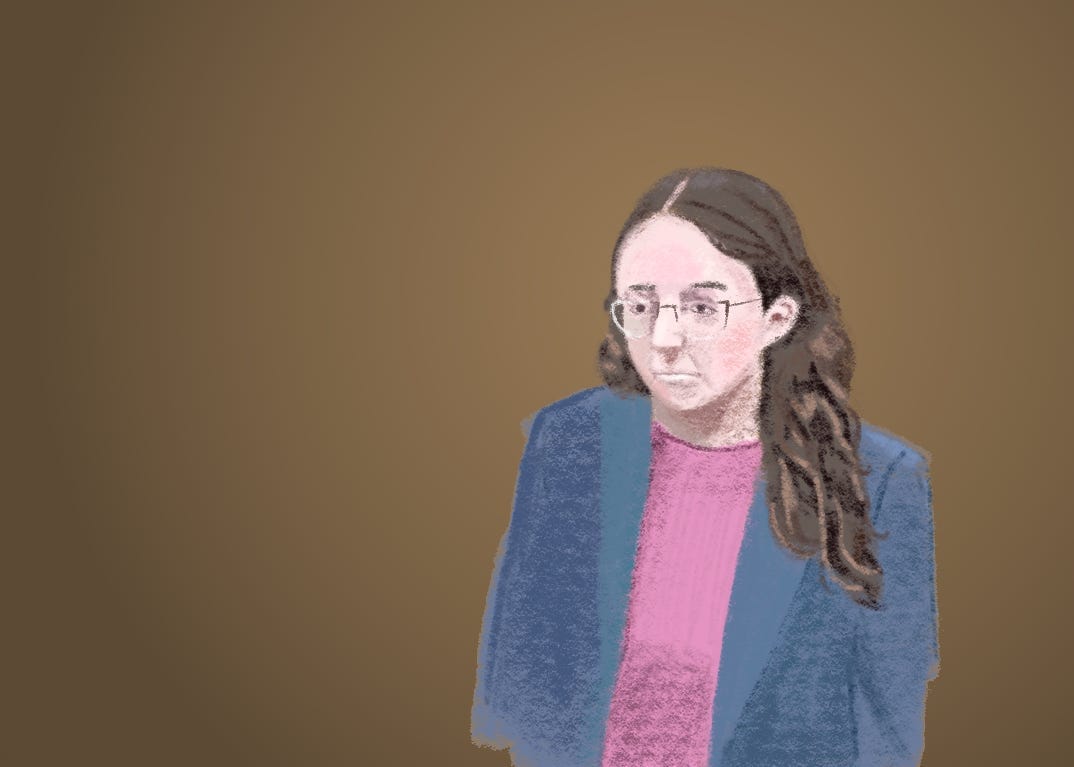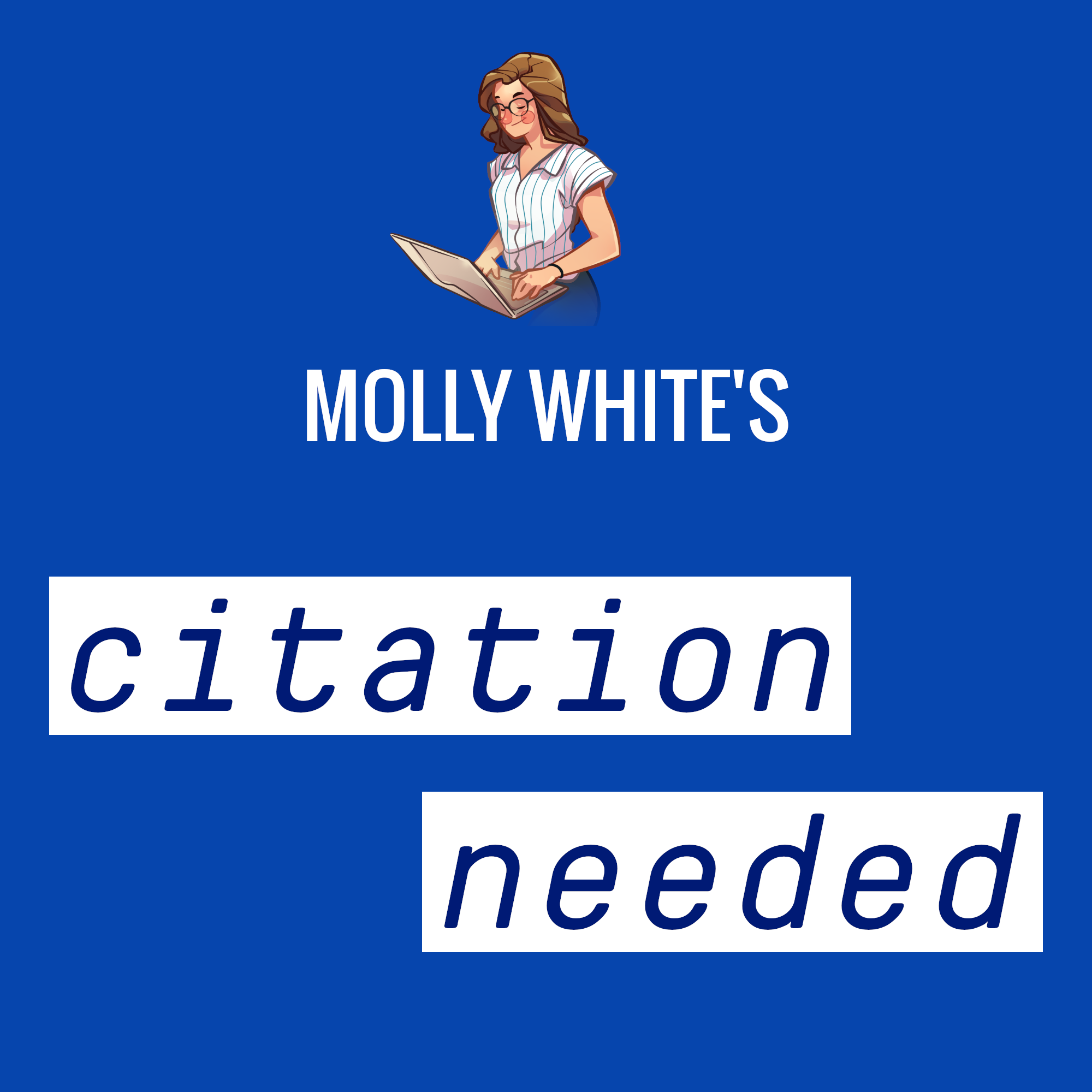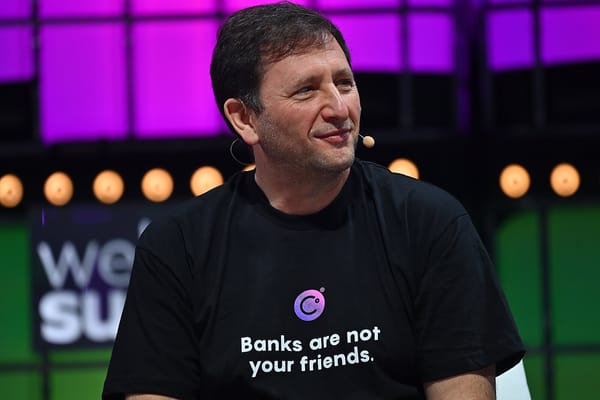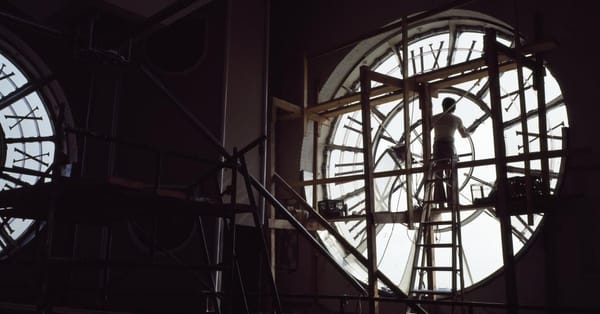The FTX trial, day seven: Sam, I guess
Recordings of the now infamous all-hands meeting capture Caroline Ellison admitting to conspiring with Sam Bankman-Fried to misappropriate FTX customer funds.


I was bracing myself to read the transcript of today's cross-examination of Caroline Ellison, because I expected it to be brutal.
After her two-day-long testimony for the prosecution, she painted a clear picture: she was guilty of committing fraud by taking FTX's customers' funds to use for Alamada's own purposes, and she had done it with Sam Bankman-Fried, and at his explicit direction. It felt pretty damning.
It was going to be challenging for the defense to discredit this , and I was expecting them to play a little dirty in trying to impeach her credibility: for example, by suggesting to the jury that she was a drug user and therefore untrustworthy,a or by playing to the jurors' possible biases around her admittedly unusual relationship with Bankman-Fried. Perhaps this was unfair of me to project on the defense team, but after seeing far too many articles devoted not to the question of whether Ellison was responsible for the theft of customer funds but rather to salacious topics like whether her romantic relationship with Bankman-Fried was part of a larger polycule, it just seemed like the expected behavior.
Either way, I was surprised when the defense barely cross-examined Ellison at all. That's not to say it was brief — it took much of the day — but it wasn't terribly substantive. As has become a pattern with this defense team, much of the time was spent repeating questions the prosecution had already asked during direct, much to the perturbation of Judge Kaplan, who continued to show occasional moments of annoyance with the defense team. Much of the questioning felt messy, with Mark Cohen occasionally confusing Ellison, the judge, or both. Sometimes he had to back up and restate questions, or have the court reporter restate them for him. Occasionally he interrupted Ellison before she finished speaking, and several times, he misstated her testimony from the previous days, requiring Ellison to clarify that she had not actually said what he claimed she had.
The picture that I think the defense was trying to paint is this: Ellison was solely in charge of Alameda Research. After her romantic relationship with Bankman-Fried ended in the spring of 2022, her heartbreak got in the way of their communications regarding the business. There was a rivalry between Ellison and Modulo Capital, a trading firm co-founded by another ex-girlfriend of Bankman-Fried's, in which Bankman-Fried had invested $400 million against Ellison's wishes. Maybe she was incompetent, maybe she was spiteful; either way, as the defense tells it, she ran the firm into the ground all on her own.
The problem is that I'm not sure this point was made terribly effectively. While Ellison acknowledged that the breakup affected her ability to communicate with Bankman-Fried, and led her to avoid in-person one-on-one meetings or social events with him, she testified that she still communicated with him about work matters over messaging applications and in group meetings. When asked if they "weren't talking outside of work", she said they did sometimes talk — after all, they lived in the same apartment. "You were only talking inside of work when you needed to?" asked the defense. "I don't know if I would say that," replied Ellison.
Besides that, the defense's argument seems to hinge on the allegation that Ellison was bad at trading, or at hedging trades, which is not really what is being considered here. Being a bad trader isn't a crime. Losing all of the money you have available to trade — even when it comes from outside investors — also isn't necessarily a crime. But taking customer funds from your sister cryptocurrency exchange, which was not supposed to be lending them out for trading purposes, and then using them to trade? That's a crime, regardless of how well the trading goes, or how many hedges you put in place. And the defense hasn't done much to establish that it was Ellison rather than Bankman-Fried who directed that to happen. In fact, the defense was the one who asked her if she ever thought of resigning over her concerns regarding Alameda's use of FTX customer funds, which she said she had.
With Ellison's testimony complete, the prosecution called former Alameda Research software developer Christian Drappi to the stand to testify. He has not been charged with any crimes pertaining to the FTX collapse, nor does he seem to be testifying with an immunity grant as was Adam Yedidia.
Drappi's testimony was stunning — not so much because of anything he said, but because of the evidence he brought with him.
Three days before the FTX collapse, some poor sap started working at Alameda Research. When the collapse was underway, and Binance announced on Twitter it intended to acquire FTX, Ellison admitted to several shellshocked Alameda traders that the firm had been dipping into FTX customer funds, which it now couldn't repay. I assume the new employee's survival instincts kicked in at this point, because the next day he surreptitiously recorded an Alameda Research all-hands meeting in which Ellison made further admissions and directly implicated Bankman-Fried. He sent that recording to Drappi, and Drappi provided it to the prosecution.
Ellison slouched in a beanbag chair, looking "sunken", as she addressed a room of around 15 employees, plus another 10 or 15 who dialed in remotely. She laid out what she called the "basic story":
Ellison: I mean, the basic story here is that starting last year, Alameda was kind of borrowing a bunch of money via open-term loans and use that to make various illiquid investments. So, like, a bunch of FTX and FTX US equity. A bunch of like other ventures, investments, et cetera. Then with crypto being down, the crash, the — like, credit crunch this year, most of Alameda's loans got called. And in order to, like, meet those loan recalls, we ended up like borrowing a bunch of funds on FTX which led to FTX having a shortfall in user funds. And so, with the — once there started being, like FUD about this and users started withdrawing funds, they kind of eventually were realizing that they were unable to — not going to be able to meet, like, the continued withdrawal pressure.
Several employees asked her questions throughout the meeting, including Drappi. At one point, Ellison is heard giggling on the tape. "Did Ms. Ellison appear to be having a good time at the meeting, based on your observation?" asked the prosecution. Drappi replied, "No. I would characterize that as nervous laughter." He elaborated that, over the eighteen months he'd known Ellison, nervous laughter was a frequent habit of hers.
Later in the meeting, Drappi asked, "I'm sure this wasn't like a YOLO thing?" After explaining to the jury what "YOLO" means, and clarifying that he intended to inquire as to whether the decision to use customer deposits to pay off Alameda's debts was spontaneous or premeditated, another recording was played. She answered, indicating that it was premeditated.
Drappi: I'm sure, like, this wasn't just like a YOLO thing, right? Like, you know —
Ellison: Yeah, I mean, I guess I talked about it with, like, Sam, Nishad, and Gary, I think.
Finally, a different employee asked, "Who made the decision on using user deposits?" Ellison replied, "Um… Sam, I guess."b
Employee: Who made the decision on using user deposits?
Ellison: Um...Sam, I guess. [nervous laughter]
The existence of this recording, and the ability of the prosecution to introduce it into evidence, seems like terrible news for the defense. Here's Ellison, on tape but without the knowledge she was being recorded, saying the exact same things she's been saying on the witness stand, implicating Bankman-Fried, but far before any charges were ever filed and any guilty plea was signed. If she's only saying things the government has coached her to say, as the defense has been insinuating, why is it that they just so happen to match her contemporaneous statements from November 2022?
The best the defense seemed able to do was to present their own portion of the conversation, which they believed contradicted the prosecution's narrative that "this is a sober, unburdening and admission by Ms. Ellison of what she had done." In their recording, taken from a later point in the same meeting, an employee stated, "I am sure this is not that fun for you, but certainly appreciate how open you've been." To that, Ellison replied, "Thanks. I mean, it was kind of fun. I don't know." The employee responded, "Okay then, never mind." Ellison chuckled.
Only eight minutes remained when the last witness was called. Zac Prince, founder of the BlockFi crypto lending firm, took the stand to answer just a few questions about his background. He seemed eager to talk, giving much lengthier responses to the prosecution's questions compared to some previous witnesses. He began testifying to the fact that BlockFi was forced into bankruptcy after FTX filed for bankruptcy, due to $650 million in outstanding loans to Alameda Research and also exposure to the FTX platform.
His testimony will continue tomorrow. The prosecution informed the judge they have two more witnesses they intend to bring tomorrow, as well. One of them is a law enforcement witness; they did not provide details on the other.
Footnotes
The defense had hinted they might try to do this, although Judge Kaplan required them to submit notice in advance of this line of questioning. They never did — at least, not with regard to Ellison. ↩
Earlier in the day, Ellison testified that the words "I guess" were "a vocal tic" because she "felt sort of uncomfortable". ↩




